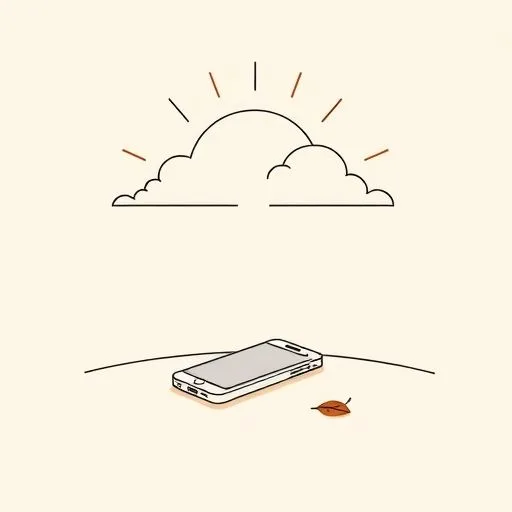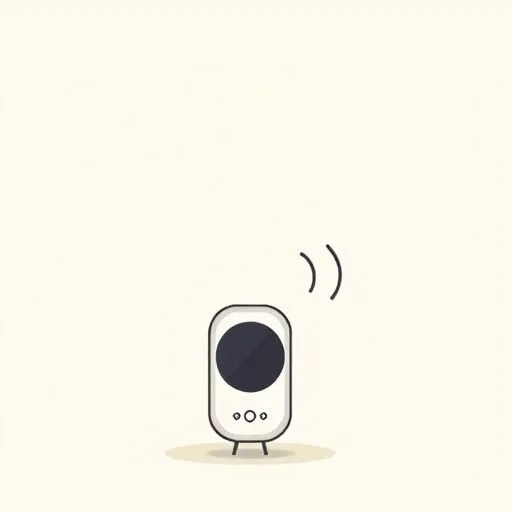
Ever feel guilty for not snapping back to a text right away? We’ve all been knee-deep in playdough or bedtime stories when that buzz hits—the split-second tug to check, then the sigh when we realize what we’re missing. But what if tech didn’t have to feel like stealing your attention? What if those tiny pauses between alerts could actually deepen connection? Turns out, most ‘urgent’ pings fade fast when we prioritize presence. And the best part? It’s not about ditching devices—it’s about designing moments where they serve you, not the other way around.
How to Silence the Noise Without Silencing Yourself

Let’s be real—when notifications pull us away mid-conversation, it’s not the phone’s fault. That little ‘ping’ triggers something deep in us: ‘Shouldn’t I respond now?’ But here’s what we forget: most alerts aren’t actually urgent, are they?
That message can wait fifteen minutes. The email isn’t burning the house down. Yet we jump anyway, leaving half-finished stories and quiet sighs hanging in the air.
Tried something simple last week that changed everything: flipping my phone face-down during talks. No ‘do not disturb’ needed—just a quiet physical boundary. Suddenly, my daughter’s rambling about cloud shapes felt vivid again. I wasn’t mentally composing replies while she spoke.
And friends? Same thing happens. When we stopped treating phones like emergency radios, conversations breathed. Those thirty seconds of silence before a call? Gold. Used to panic-check my screen—now I take a sip of cold water and center myself. Who knew the most radical act could be… not touching the device?
It’s not about guilt. It’s about recognizing how often we mistake speed for care.
Next time your phone buzzes while you’re present with someone you love, ask softly: ‘Will this matter in an hour?’ More often than not, you’ll catch yourself smiling at what’s right in front of you.
Building Screen-Free Oases in Ordinary Times

Remember meals without screens? Neither do most of us. But setting ‘do not disturb’ during dinner didn’t feel like sacrifice—it felt like rediscovery. Started with one question at the table: ‘What’s the one thing that made you smile today?’ Simple, right? Turns out, it’s revolutionary.
Watched my daughter’s eyes light up describing muddy puddles she jumped in. No need for grand gestures—just space for small joys to land.
Here’s what surprised me: kids notice when we’re fully there. That moment my daughter said ‘Daddy, you’re really listening!’ after we ditched phones at breakfast? She named the shift. It wasn’t about the food—it was about her words finally feeling weightless, without competition.
Now we protect twenty minutes after school. No devices, just decompressing: ‘How did your body feel today?’ or ‘What made you laugh?’
Those minutes seem tiny, but they’re where connection roots grow. Ever tracked how often we default to screens during transitions? Bath time, car rides, even waiting in line. Swap one device check for ‘What color is the sky right now?’ Those micro-moments compound. They become the memories kids carry—not your phone, but your eye contact when they shared first-told secrets.
Letting Tech Work for You (Quietly)

Funny how tech keeps selling us ‘connection’ while stealing presence. But what if it actually helped us unplug? Used to dread my phone ringing during playdates—until I set AI to filter alerts. Personal calls come through; work emails wait until naptime. No more panic-mode checking.
Now tech supports boundaries instead of breaking them.
Example: my daughter asks ‘When will the rain stop?’ mid-splashing. Instead of pulling out my phone, I ask Siri—hands stay dry, connection stays intact. Voice assistants handling weather, recipes, timers? They’re the unsung heroes of mindful parenting.
Set ‘downtime’ modes for 7-8 PM so family hour stays sacred. Discovering that tech works best when it’s quietly supporting us, not demanding us—it’s like finding a hidden feature that changes everything.
Here’s the heart of it: it’s not about avoiding screens. It’s about choosing when to engage. Those stolen moments where you close your laptop before bedtime stories? Where you leave your phone charging outside the bathroom during meltdowns? They whisper ‘You matter more.’ And kids feel it.
Not in lectures, but in how we show up. Because someday they won’t remember how fast you tapped replies—but they’ll remember how deeply you saw them.
Source: (PR) Arm Launches Lumex Compute Subsytem Platform for Next-Gen Devices, Techpowerup, 2025/09/10
